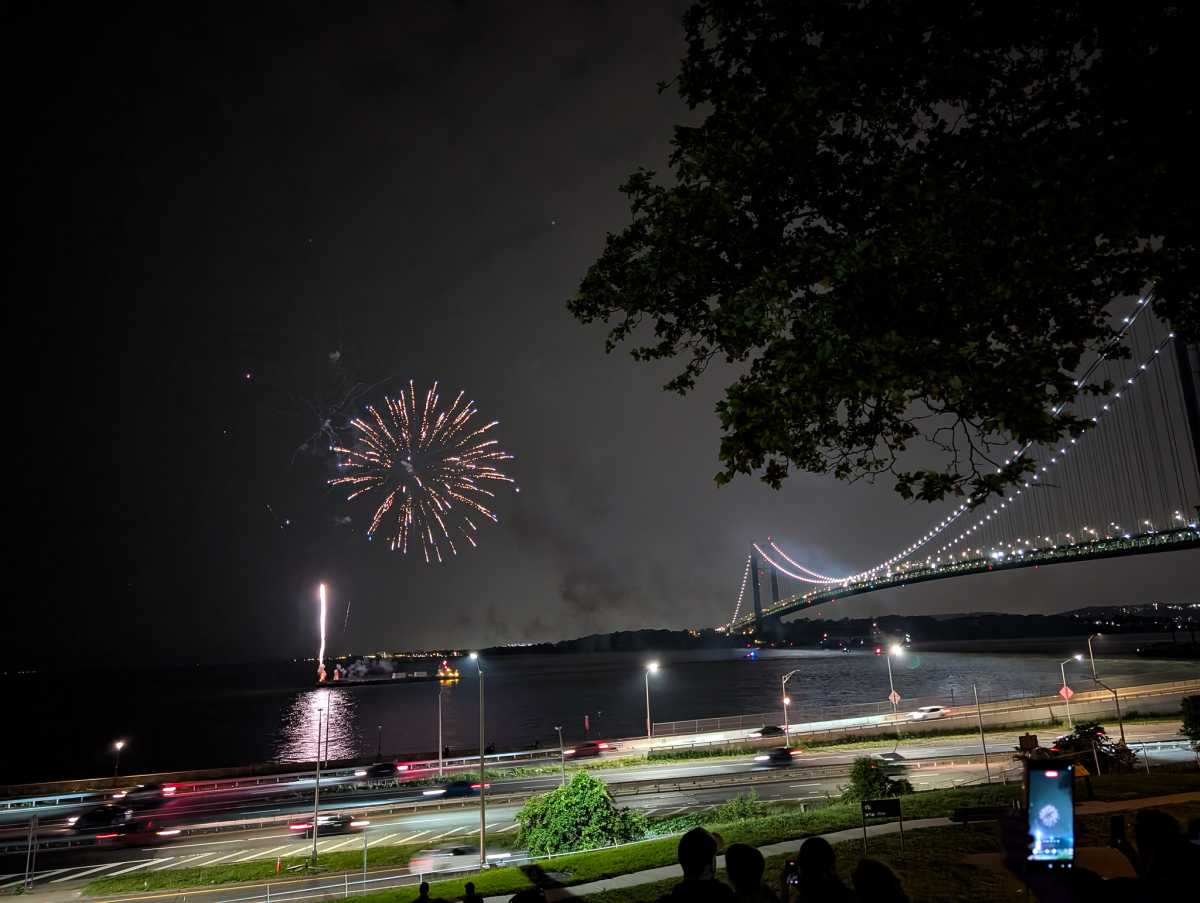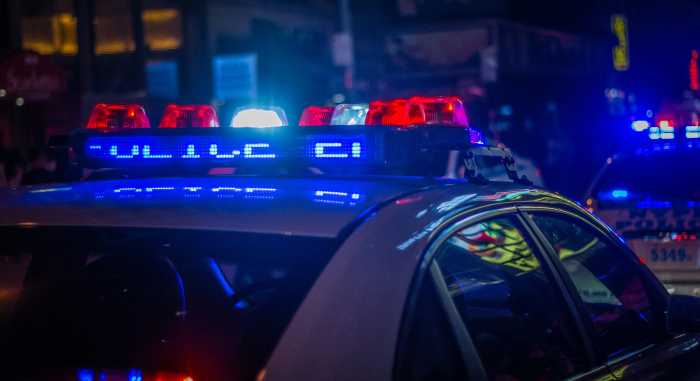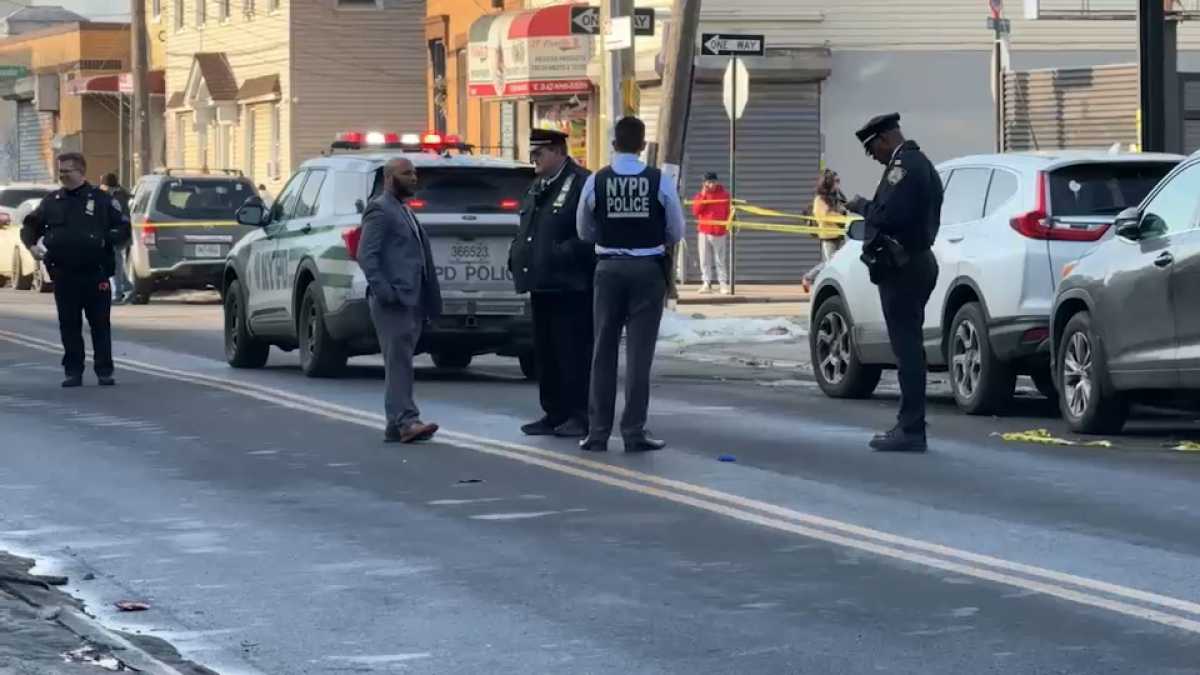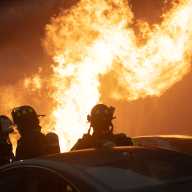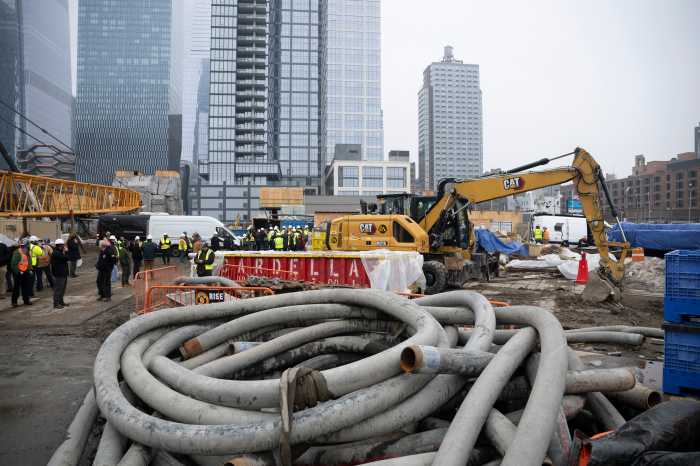Southwest Brooklyn is home to the nation’s fourth-oldest active military post, which recently celebrated its 200th birthday.
U.S. Army Garrison Fort Hamilton, located adjacent to the Verrazzano-Narrows Bridge, was designed by Simon Bernard, a former French military officer who served under Napoleon Bonaparte. Bernard immigrated to the United States in 1816 and joined the U.S. Army.
Construction of the historic site, named after founding father Alexander Hamilton, began in 1825 and was completed in July 1831.
As part of a harbor defense network alongside forts such as Wadsworth and Tompkins on Staten Island, the fort served two primary missions: to support actions against enemy warships attempting to pass through the Narrows, the main entrance into New York City’s harbor, and to defend itself and the other Narrows forts against land-based enemy attacks.
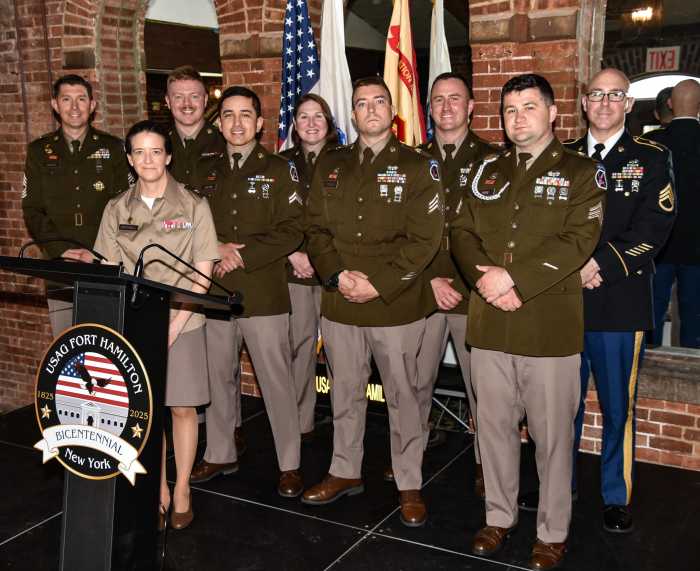
During the Civil War, Fort Hamilton acted as a recruitment center and headquarters for the 3rd U.S. Infantry. During World Wars I and II, it served as a staging area for troops as part of the Port of Embarkation and was home to the 1st Infantry Division, known as “The Big Red One.”
Many of the fort’s original structures were removed during the construction of the Verrazzano-Narrows Bridge; however, some remain, including Colonel’s Row, the Fort Hamilton Community Club and the Harbor Defense Museum, which were designated a historic landmark in 1974. The Harbor Defense Museum is the only Army museum in New York City, showcasing a collection of military artifacts from the American Revolution through World War II.
Today, the “Face of America’s Army in New York City” remains the only active-duty military base in the metropolitan area. It is home to active-duty Army soldiers, Reservists and National Guard members, as well as their families, providing essential services to an estimated 50,000 veterans, retirees, Department of Defense civilian employees, military personnel and their families — both on and off post.

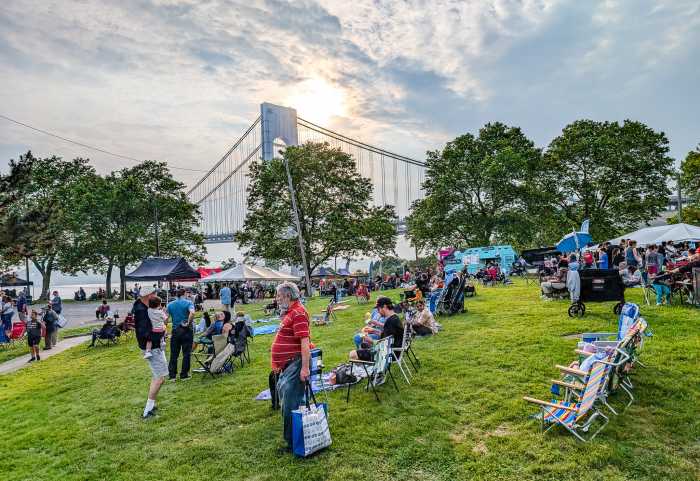
The installation is home to the North Atlantic Division of the U.S. Army Corps of Engineers, which oversees Army engineering districts from New England to Virginia, as well as throughout Europe. It also houses the second-largest Army Recruiting Battalion and the Military Entrance Processing Station.
National Guard and Reserve units stationed at Fort Hamilton perform a variety of missions across the region, working alongside local, state and federal partners to ensure the safety of New York City’s transit centers. Most notably, the National Guard’s Joint Task Force Empire Shield was activated during the Sept. 11, 2001, attacks. During the COVID-19 pandemic, the New York National Guard’s 24th Weapons of Mass Destruction Civil Support Team supported FEMA and emergency operations throughout the city, including at the Javits Center.
In line with Fort Hamilton’s mission to connect civilians with the military, the post celebrated its 200th birthday and the U.S. Army’s 250th anniversary in style with a free concert and fireworks display on the Engeldrum Bluff on June 13. The event was open to the public.
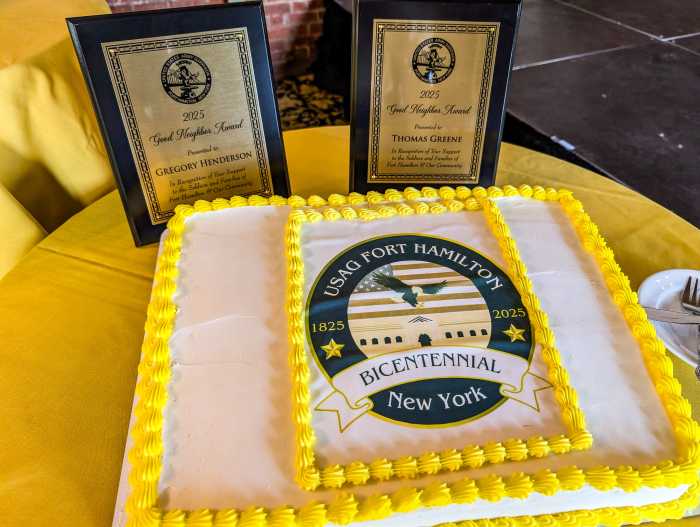
Fort Hamilton’s commander, Col. Melissa Cantwell, told Brooklyn Paper the celebration of both milestones was a momentous occasion.
“We honor not only our rich legacy, but also the brave men and women who have defended our nation for 250 years and those who continue to serve,” Cantwell said. “We celebrate Fort Hamilton’s 200 years of service to Brooklyn and New York City. From its origins as a harbor defense site to its current role supporting DoD personnel and National Guard Joint Task Force members, Fort Hamilton has stood as a sentinel in the Narrows, protecting the city’s people, land and commerce.”


